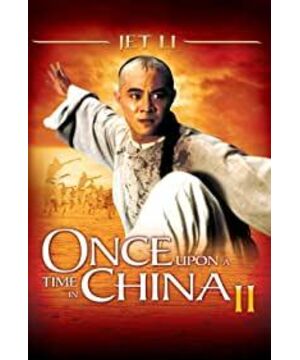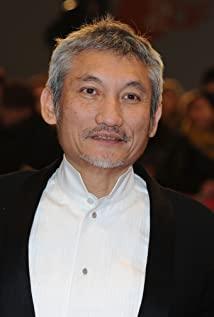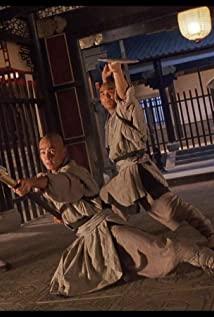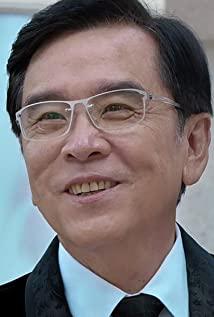Several scenes in the film left a deep impression on me, but none of them had anything to do with Huang Feihong.
1. In the tragic Cantonese music of "Frightening Back to Xiaomeng and Recalling Qiujuan", the various forms of modern China are concentrated in thirty-two shots. And explained the appearance of the "villain" Nalan Yuanshu. It was ordered by the imperial court to suppress the cult, but it had no intention of hurting the people, let alone killing the cult. For the first time, there was a "villain" who could not be taken lightly with just one sentence and one face.
2. The cloth stick is unique and uses martial arts to know people for the first time, but the focus of that scene is still in Nalan Yuanshu's sentence "The common people are the parents of the officials. But at this time, the official has a martial arts skill, and he It's hard to support it alone. Hey, I'm really ashamed." This sentence is meant to be evasive, and it's true that it's hard to support it alone. Nalan's refusal can be said to be sincere. The previous article also made it clear that when meeting the Governor, the problem of lack of military support was clarified. Acupuncture, suppressing bandits, Zhou Xuan and foreigners, and also taking care of innocent people, Nalan Yuanshu was born in the wrong era, and he can't blame him for being on the wrong team and plotting things in his position. Compared with Huang Feihong, he is destined to be whole. Trapped and lost to choose other directions.
3. Lu Haodong felt a deep despair in the face of the Chinese people who had long been blinded by superstition and national hatred, especially the girl who symbolized the hope of the country. In fact, he should think about the children who seek protection in the embassy. They are also the future of the country. These children may be referred to by the batch of overseas students sent by the Qing government. Although they have left their braids, they are the advanced representatives of Lu Haodong, Sun Yixian and others. In the contact of people with the zhengzhi concept, it is destined to be Westernized, destined to make up for the demise of the late Qing Dynasty.
4. Cut off the power line, sit on the outside and watch the tiger fight, and then go in and search at the right time to see two birds with one stone. The eyebrows and eyes in the close-up are sharp, and the picture is so fine that Nalan Yuanshu's right eye corner can be clearly seen with a thin mole. In the flow, all the wisdom and wisdom are nothing but his next sentence: "They cover up the chaotic party, they just want to use China to control China."
Everything has already been seen through his eyes, but everything still makes him "in the arena and unable to help himself". Lu Haodong is still confused in the face of ignorant people. Sun Yat-sen did not know or had doubts about the road of revolution in his countless escapes. Under the lies of the leader of Bai Lian, he just wanted to get the status and money that everyone admired. The protagonist of this play Not to mention Huang Feihong, his world is not that big, even smaller than Nalan, who sticks to the old system. His starting point for the whole play is to protect Thirteen Aunts, protect friends, and help when the road is injustice. Maybe Huang Feihong knows the righteousness of the famous family, but it is not reflected in this play, and he does not have the consciousness of revolution to save China. He is actually like the heavy sun in "October Siege", "love" is the result of all his actions The driving force, and the protagonist's halo saves him from dying like Zhongyang; and Nalan Yuanshu is not Yan Xiaoguo, he is loyal to the court but not foolish loyalty everywhere, and his surname gives him a chic and elegant style. Tolerance, his eyes have national hatred and family hatred but not the kind of personal hatred of Yan Xiaoguo. So Nalan Nalan Yuanshu's death in battle is a kind of relief, the tiny blood droplets that spewed out, and the blurred figure leaning against the wall and lost, it seems that his way of death also reflects the rare kindness of the main creator to the villain.
View more about Once Upon a Time in China II reviews











